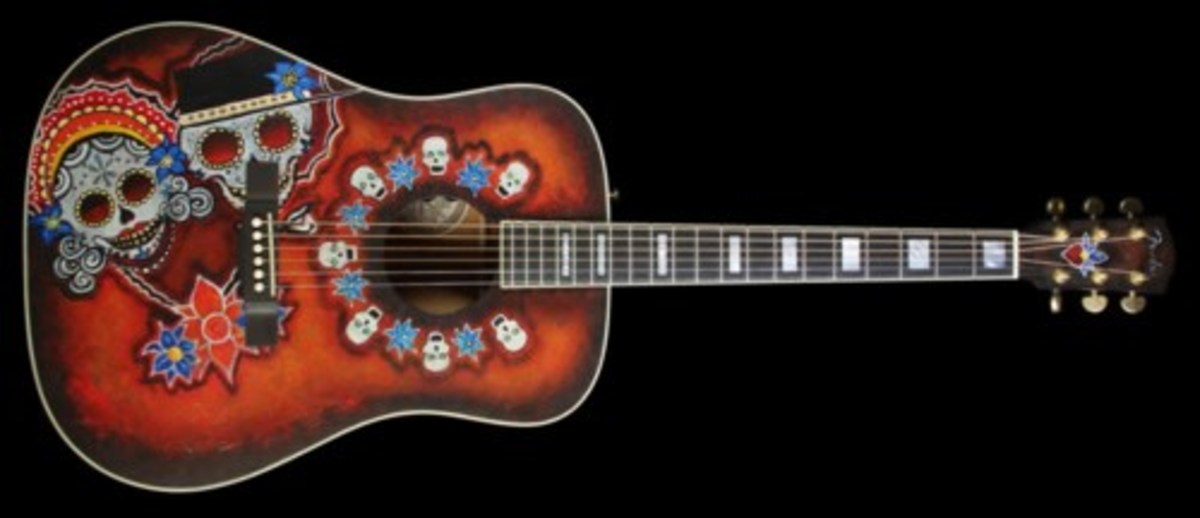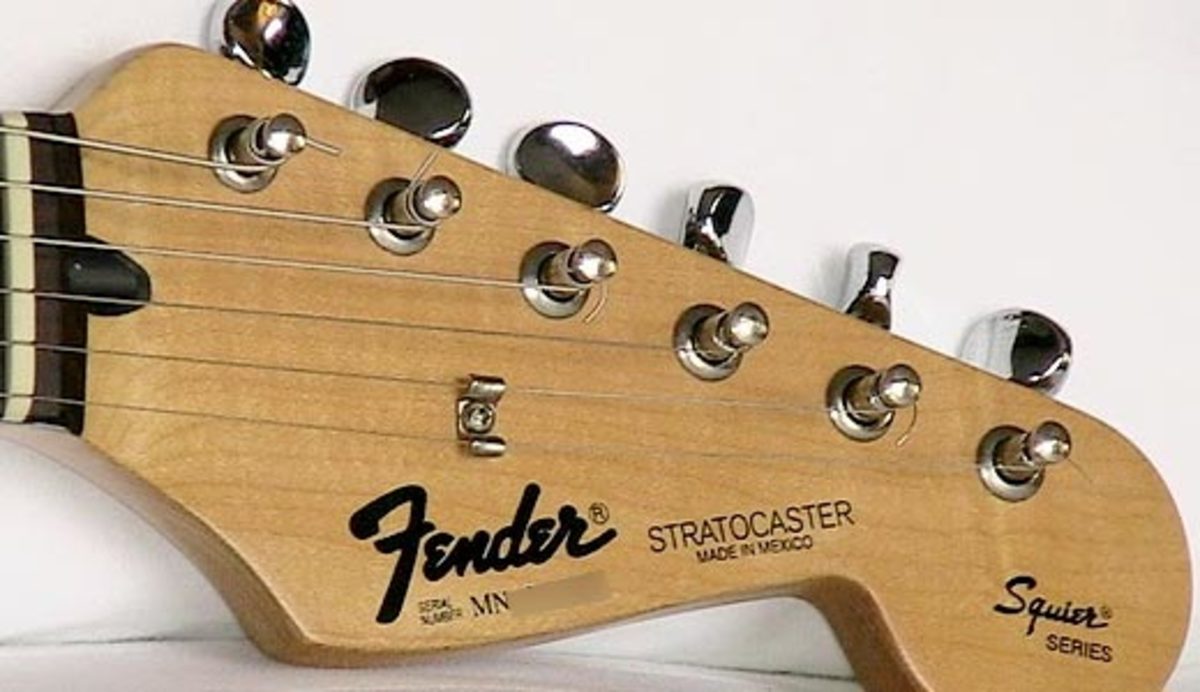Why An Inexpensive, Cheap Electric Guitar Is Good...and Maybe Better Than An Expensive One From Gibson and Fender
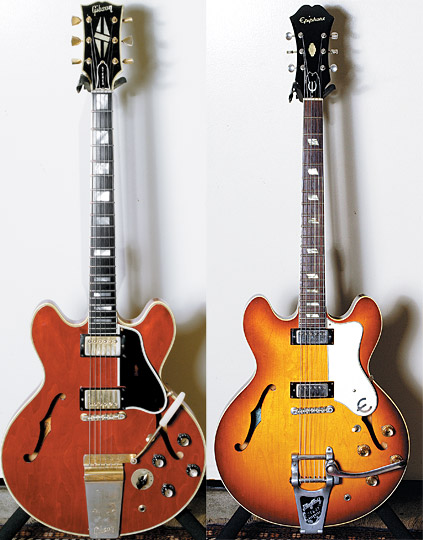
Here A Guitar, There A guitar, Everywhere A Cheap Guitar!
It wasn't so long ago that the thought of buying a guitar might initiate a small panic attack. A lot went into buying a guitar. Deciding which one to buy, if the one you chose was "any good", dealing with an uppity sales staff, and the ever nagging question "Am I being ripped-off?", were common questions you had to seriously ask yourself.
Oftentimes the whole experience would leave you feeling cheated, even after positive confirmations.
Then, the internet happened.
Now, with the abundance of information (lewd and otherwise), the curtain has been pulled back (partially). Guitar buyers new and old are able to research reviews, watch videos of potential buys and compare prices for the best deal. Consumers have more choices than ever before; often cheaper too; much, much cheaper.
Not only are the brand name guitar giants like Fender, Gibson, Ibanez, etc. lowering their prices due to increased competition; lower priced alternatives that look identical, cheaper and appear just as good.
The question is: Are they really? Are the cheap guitars comparable to the big name, expensive versions?
Why They Cost So Much
Before computers, and the machines guided by them, electric guitars were made mostly by hand. They had grinders, sanders and table saws back then, but most of the "finalizing" was a "by hand" enterprise.
The wood was cut and shaped into into the final finished product by a skilled craftsman. Then, painted or stained and finished by either him or another trained worker of equal caliber to do so. It might have taken a lot of skilled crafts people to complete and finish a guitar. The more skilled the person working on it, the higher the price of his creation. Add in the complexity and intricacy of the build and the price would reflect it. The price encapsulated the material used, skilled hands that worked to make it and the quality expected of the brand.
This demonstration uses metal, but would work with wood as well.
Enter The Smart Machines
CNC machines changed all of that.
CNC machines are computer guided wood working machines that cut, shape, and sand with instructions provided by a connected computer and it's programming. The process of utilizing CNC machines has revolutionized the manufacturing industry. Be it metal, wood and more, CNC has automated multiple processes that used to be laboriously intensive. This, of course, includes the manufacturing of guitars; acoustic and electric.
CNC productions has changed, not only the precision with which guitars are made, but also the uniformity. Guitars of yesteryear, being mostly worked by hand from start to finish, were prone to being inconsistent. A guitar manufactured at the same time, on the same line could easily be "different" than it's line mate. A lot of that had to do with the individual who helped to shape it.
Today, a large portion of the guitar building process is handled by machine, rendering the final product more uniform and closer to the original planned schematics and diagramming. Therefore, the chance of error is reduced, whereas the more human interaction (regarding shaping to spec and such) which causes more product inconsistency, is drastically lessened as well.
Both expensive and less expensive guitars utilize CNC machines in their respective manufacturing processes. Oftentimes using the same instructions to make their versions.
The Materials
The materials used to build guitars are more or less the same. Wood being the primary material used (both for expensive and "cheap" guitars), is of inconsequence. Despite being an emphasised factor when determining the pricing of the final product, it's largely thought to be essentially meaningless (you can read more about it here).
That isn't to say that there isn't a difference; there is, no doubt. However, the justification for the price difference because of those different materials is questionable. Yet, they should be mentioned, as the differences are touted to justify the proposed differences in quality and prices:
- Better hardware (usually the outwardly metal features of a guitar [tuners, bridges, etc.]
- Better inlays (expensive is usually M.O.P. [mother of pearl], whereas less expensive offerings use a faux version or plastic of some kind.)
- Better plasticware (pick guards [scratch plate], switch plate, knobs, etc.)
- Better electronics ("pick up" quality, wiring, potentiometers, etc.)
A lot of the materials used to make both "cheap" and expensive electric guitars are largely the same. Though, some of the materials may be of a higher quality, largely, they are superficial in difference. Some, however, can have a substantial impact.
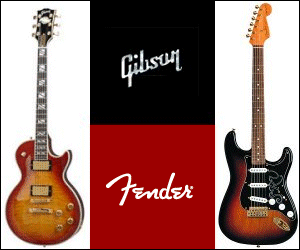
The Name
A name means quality or so consumers have mostly believed. While a good name still holds sway in a lot of industries and arenas, in the land of electric guitars, the distinction has dulled a little.
The market of today is drastically different than that which existed when the electric guitar juggernauts started. The 1950's, when the power house electric guitar making duo Gibson and Fender broke ground, had no tangible electric guitar market. So, when the two companies began selling, they set the benchmark by which all subsequent manufacturers would be judged. Those standards still exist today and are readily replicated through automation.
So, now anyone with access to a CNC machine, the proper schematics, programs, and programming ability can produce a near carbon copy of the guitars Gibson, Fender, and the myriad of other manufacturers that have produced since arriving on the scene. Though, there have been copyright issues, forgeries, and fakes, some producers simply make guitars under their own banner. Are they drastically different than the real thing? Not really, no.
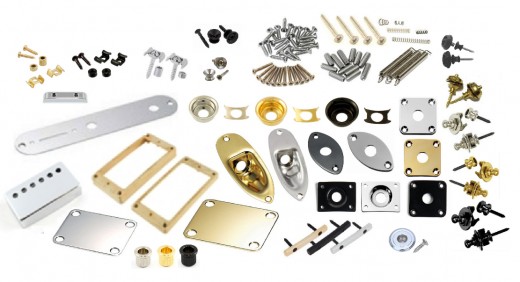
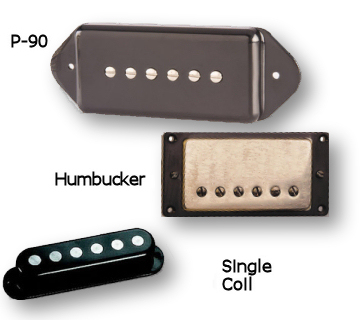
The Sound
Being that expensive and "cheap" guitars are, more or less, manufactured the same, using a lot of the same materials (or materials inconsequential to the final "tone") and often to the same specs; the big difference lies in the hardware and electronics. Otherwise known as "the meat" of a guitar's overall tonal output.
The electronics and hardware are the biggest difference between expensive offerings and their lesser counterparts. Hardware being the tuners, bridge components, knobs, etc. These are usually made from varying quality, depending on the model and price point of the guitar, of course.
Though, when taken into consideration the monetary amount differentiating the low end model from the high end, replacing the hardware with better versions is often still far below the difference demanded.
When taking electronics into account, especially the pick ups (by far the most significant denotation of what the guitar sounds like) for cheaper guitars is notoriously "sketchy" or configured with inferior components. However, when adjusted for the price increase demanded by "higher end" guitars, it's hard to justify. Wiring and it's parts can often be replaced for a fraction of the price difference from low end to high end models of the same style guitar.
It must be said that lower end pickups do have their issues from time to time, but some have been said to have their own endearing characteristics. It's notable to think that pickups manufactured in the past, were once thought to be "inconsistent", "cheap" or inferior in some cases, but are now highly sought after for their "tonal" qualities.
On the whole, a good portion of the "tone" created (or captured depending on who you ask), is subjective toward the player. What one believes to be "crap", can often be another player's "gold". It's all in how you hear it.
The Problems
The one issue that comes from buying a lower end guitar over a higher end...are the problems. Higher end guitars are indeed "finished" better. Be it a more consistent finish (lacquer, paint, etc.), better frets, better construction, etc., a larger portion of higher end guitars are more "well made". That isn't to say that they're manufactured better, just handled and "finished" better than the lower end counterparts. The lower price point trying to be met has a large part to play in that, of course. Less time spent on the details, means less money spent on employees committed to those details.
Does the "better finished" guitar justify the larger price tag? Some would say, "Definitely.", others would say, "With a little work, the cheapie can sound and play just as good...or better...for less money."
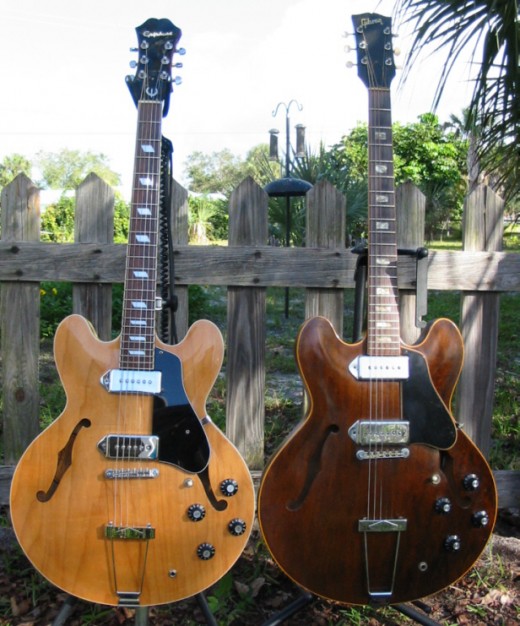
The Solution
Expensive, more costly electric guitars have their benefits and prestige, the gains may not justify the cost. Whereas less expensive guitars lack in "quality", so to speak and have a higher chance of having "production flaws", they are made in the same manner as the higher end versions (often on the same factory floor).
Generally speaking, cheaper guitars are simply more versatile. There is less of a "guilt factor" when choosing to modify or experiment on one. Exchanging or trying out new pickups or accessories would be, and is, much less stressful if the guitar being manipulated is lower end. Plus, most work done on a lower end guitar would be considered upgrading.
Cheaper guitars are better to learn on as well. Despite their structural defects (which, depending on what they are, can be corrected with a little work), less expensive guitars can be used as learning tools to better understand construction, techniques in modding, and a perfect "how to" hands on tool.
Something that one would want to try (structure, modification, tuning stress, etc.) on a guitar, that might affect it's look or playability, just makes sense to try on a "lesser" electric guitar.
While there is a lot to be said about owning a well built, beautifully made expensive guitar from the likes of Gibson or Fender. A good, all around work horse of a guitar, made with the same specs, but you don't mind pushing around a bit, seems infinitely more versatile.
Having played both professionally and otherwise for many years, I just recently started to build and mod my own. It's pretty great to try things out that you wouldn't normally find in a factory model. I have a Squier Strat like the one below, but red, no burst.
I swapped out the middle pickup for a Gibson Burst Bucker, and made it one of a kind. I've used on stage a lot. It has a nice hefty tone, but still "quacks".
They're great guitars, a little rough sometimes, but great to mod.
— the author




